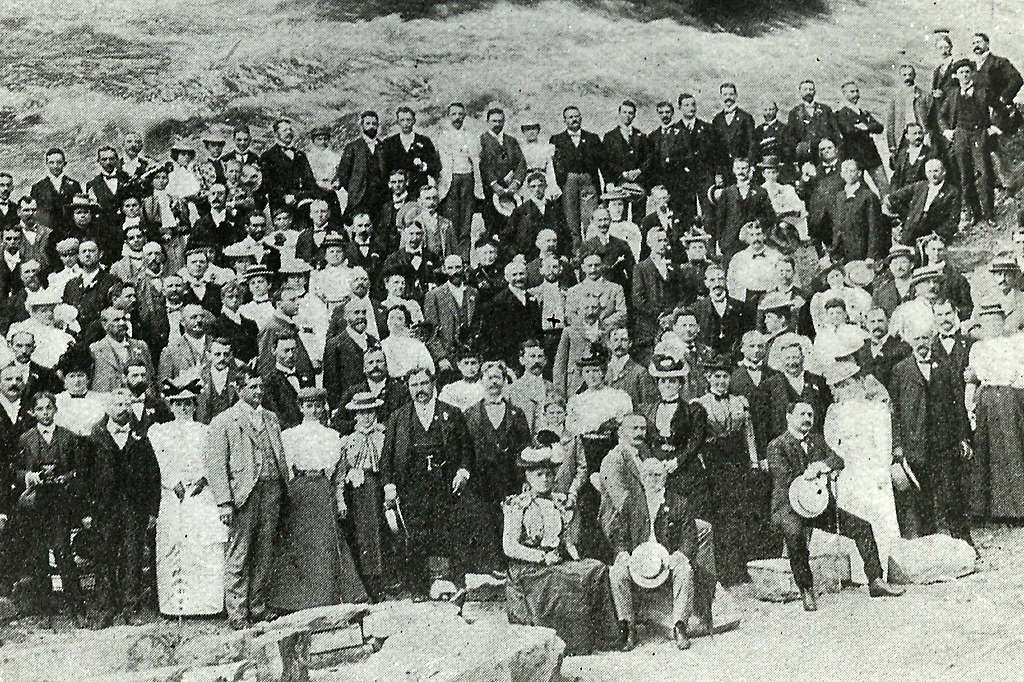HISTORY
New York Life’s sales clubs date back to the 19th century.
New York Life | September 18, 2024

Sales of great products have driven New York Life’s 176 years of steady growth. The company’s first sales clubs for the top performing agents began over 120 years ago—as an experiment to harness the power of hitching intrinsic motivation to extrinsic rewards. The rest is history.
The 1890s marked the beginning of the company’s concerted effort to cultivate a field force of full-time, professional agents. Agents who could build a promising, lifelong career at New York Life. Before then, the operations of each region had varied widely. The move to put universal standards into practice was revolutionary, and it laid the groundwork for the company’s modern field structure.
At the time, a young Midwestern regional executive named Thomas Buckner aimed to motivate and recognize agents who committed to the new practices and found success with them. In 1897, Buckner announced a sales contest wherein agents with sales of $200,000 or more (face amount) would be inducted into the “Central $200,000 Club.” Those agents would earn cash bonuses and an invitation to a convention at the then popular vacation spot Put-In-Bay, Ohio.
The club was an instant and striking success. In its first year, it welcomed 26 members who’d collectively sold more insurance—totaling more than $6.5 million—than 25 percent of the insurance companies in the United States at the time. Individual club members frequently sold more than the majority of the companies operating in their state.
Today’s Council is both a measurement of an agent’s success and a pillar of Agency culture.
On the heels of that inaugural convention, a New York Life newsletter deemed it “almost a certainty” that sales clubs would spread to other regions. Buckner was onto something big, and Home Office executives implemented his model companywide in 1898. They also gave Buckner his first promotion to Home Office leadership. (He’d eventually become president and chairman.)
In 1898, new clubs in the Eastern, Western, and Southern regions joined the Central $200,000 Club for a three-day joint convention at Niagara Falls (see photo below). Together, the groups decided to form one national $200,000 Club, the first companywide organization dedicated to recognizing high-achieving agents. From then on, New York Life sales clubs would anchor the company’s commitment to the success of its agent force.
The club system has evolved to keep pace with New York Life’s expansion. In September 1926, executives announced a $400,000 Club to account for rising average policy values and the agents’ drive to sell more. “$200,000 is no longer a sum which is interesting to hundreds of agents to aim at in order to satisfy their ambition as one of the ‘Aristocracy of Life Insurance,” Buckner said at the time.
Their tireless drive explains why clubs eventually dropped their monetary names altogether. What became known as the Top Club program, in time, assumed the name it still holds today: the Council program.
About today’s Council
Today’s Council is both a measurement of an agent’s success and a pillar of Agency culture. New York Life agents earn Council credits based on their sales production each year, and the number of credits they earn qualifies them for different Council levels. An agent’s professional conduct is also a criterion for Council membership. Agents who achieve Executive, President’s, and Chairman's Council, as well as Chairman's Cabinet, are invited on a special trip each year, where they hear from company leaders and guest speakers, share best practices, and celebrate their success of the prior year. These Council Meetings are a uniquely New York Life experience and play a key role in nurturing the strategic alignment and relationship of trust between our agents and the businesses that support them.
This article was originally published on September 4, 2020.
RELATED CONTENT
Go back to our newsroom to read more stories.
Media contact
Kevin Maher
New York Life Insurance Company
(212) 576-7937
Kevin_B_Maher@newyorklife.com
